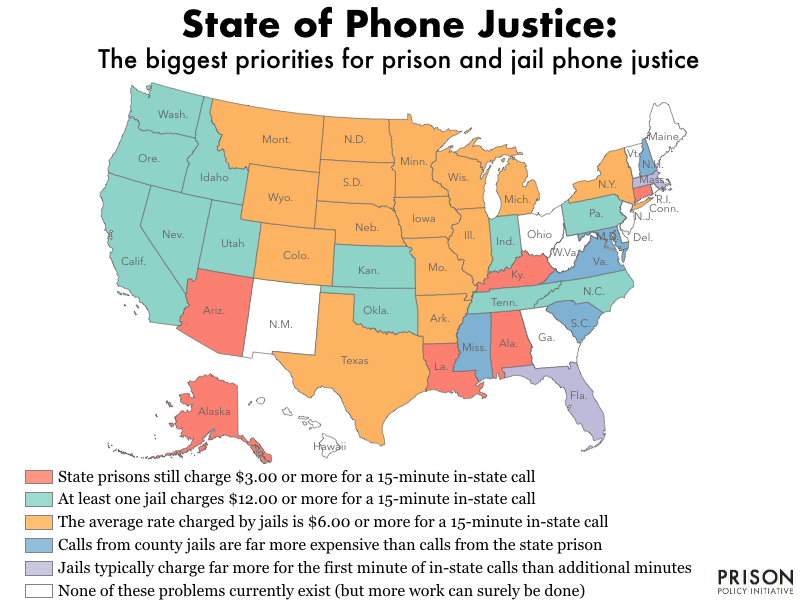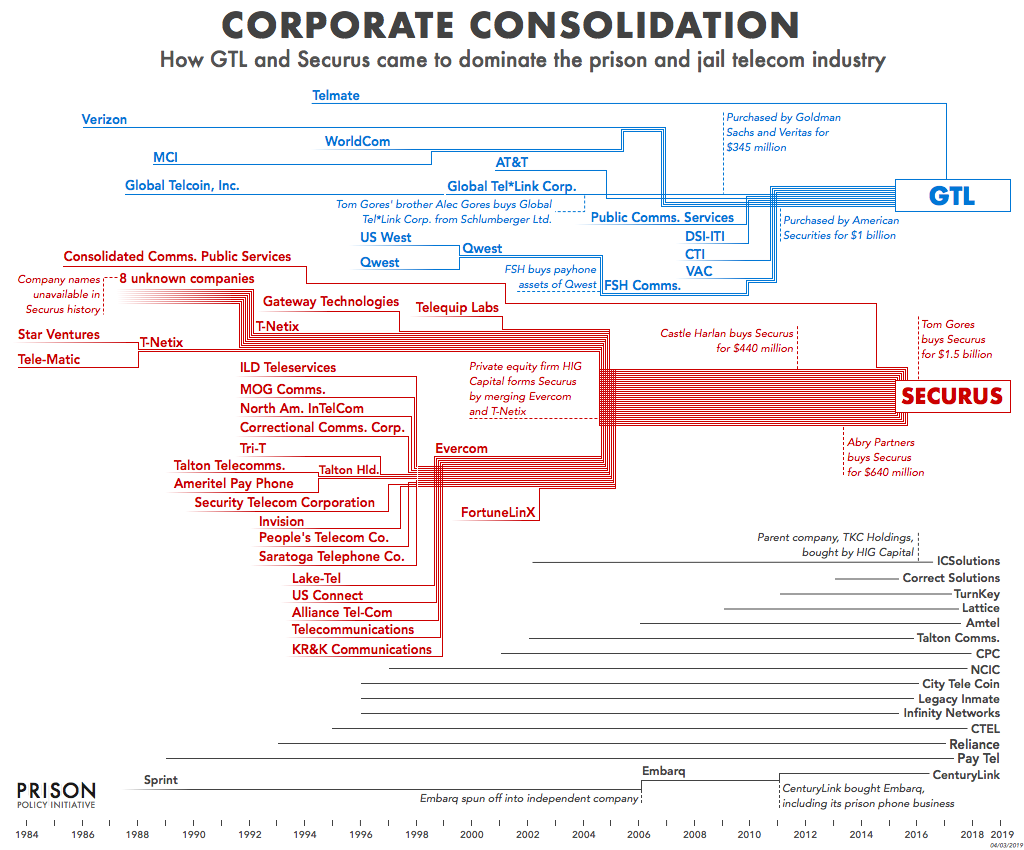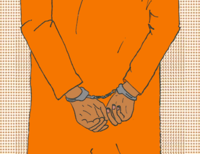We’ve saved Iowa consumers $1 million per year on jail phone calls — but there’s more work to do to stop exploitation in Iowa & beyond
by Wanda Bertram, March 10, 2021
We’re fighting for fair phone rates for people in jail and their families, and we just picked up a big victory. We pressured officials in Iowa to regulate the prices that predatory jail phone companies are charging. And we won.
Why Iowa? When a federal court said the FCC couldn’t regulate the cost of in-state jail phone calls, we adopted a state-by-state strategy. We’ve focused on places where state law allows regulators to cap phone rates, and where jail phone rates are the worst. Iowa is one of those states: Before our recent victory, jails there charged as much as $14.10 for a 15-minute call.
Now, the state Utilities Board has set a limit on the rates that these companies can force consumers to pay. We calculate that the new rules will save Iowans about $1 million every year. As reporter Erin Jordan explains in the Cedar Rapids Gazette:
The Iowa Utilities Board is forcing companies that provide phone service for county jail inmates to lower rates from as high as $1 a minute to a quarter or less.
Until recently, Bremer County had the highest jail phone rates in the state at $14.10 for a 15-minute call, which included $3.74 for the first minute and 74 cents after. Their service provider, Securus, lowered rates to 21 cents a minute — meaning a 15-minute call now will cost just $3.15.
The Utilities Board has not yet approved Securus’s new tariff, but has instructed the company and other providers to keep rates at 25 cents per minute or less for prepaid calls. The board has so far approved new, lower rates for five companies — Prodigy, Network Communication International Corporation, Combined Public Communications, ICSolutions and Global Tel*Link.
The exorbitant phone rates charged by jail phone companies — and ratcheted up by jails that hope to get a kickback — have caused untold suffering for families, particularly during COVID-19. For example, the Gazette interviewed a mother in Des Moines who said she has to limit the number of times her 4-year-old son can call his father, who is incarcerated.
The squeezing of these families for profit has been going on for years, but during the pandemic and recession (with in-person jail visits suspended) it has hit them harder and caused even more anguish. So even as the Prison Policy Initiative celebrates our victory, we’re pushing Iowa to do more.
Yesterday, we wrote to Governor Kim Reynolds, urging her to work with the Iowa Utilities Board to address the remaining issues of fairness for Iowa consumers, including:
- Rates are still too high. As we wrote in our letter: “During the last year, the Board has unofficially used an informal “rate cap” of roughly 25¢ per minute, based on previous FCC rules imposing interstate rate caps of 21¢ for prepaid calls. However, much has changed since the FCC imposed those interim rate caps in 2013. In October 2020, then-chair of the FCC Ajit Pai announced a new rulemaking to lower interstate rates to 14¢ for calls from prisons, and 16¢ for calls from jails. If the FCC finalizes those changes, then many Iowa carriers would be charging substantially more for in-state calls (up to 25¢) than they could for interstate calls (16¢).”
- Some companies are seizing unused consumer funds from prepaid accounts that should be returned to the families or turned over to the state’s unclaimed property program.
- Five companies are “double dipping” on deposit fees, charging two fees for each credit card transaction.
- At least one company is steering consumers to the most expensive and inefficient way to pay calls: “single calls” that require paying the $3 deposit fee on each and every call.
With at least one county in the U.S. having negotiated jail phone rates down to one cent a minute, it’s clear that companies in Iowa are still charging far more money for a phone call than they need to — so we’re continuing the fight for a better deal for incarcerated Iowans and their families.
Meanwhile, we’re taking our successful Iowa strategy to other states. We’re currently working with a broad coalition of activists and telecom experts who are urging the California Public Utilities Commission to crack down on high jail phone and video-calling rates in that state. The political momentum that we build in these key states will help us put more pressure on the FCC to address continued exploitation in this area. Mass incarceration has created far too many opportunities for companies to get rich at the expense of poor families, and our advocacy won’t stop until that exploitation ends.





